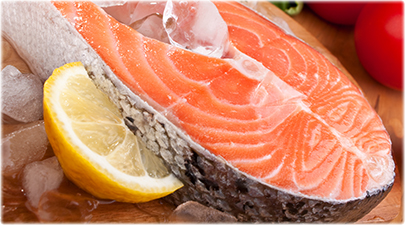I eat my fish, now what? We’ve all heard that eating fish is good for us but there are a lot of questions that go along with that. Like what kind of fish, how often, what’s it good for? Or even, I don’t like fish and what about the polluted oceans? All reasonable questions and concerns. Let me tell you a little about it.
Fish contains many nutrients like vitamin D, E and protein. Most importantly fish is a source of EPA ( eicosapentaenoic acid) and DHA (docosahexaenoic acid). This is the healthy stuff in fish oil. The EPA part of the fish oil is anti inflammatory and DHA part is brain food. Both of these are really important in helping prevent dementia and Alzheimer’s disease. (1) You get the highest quality and the biggest natural dose in cold water, wild ocean caught fish. The colder the water the more fat the fish have to keep from freezing. For example, fish from Alaska and northern rivers are richest in EPA and DHA.
Have you been warned about eating fish from our polluted oceans? Very true, it’s a real thing. Not only are the oceans polluted from dumping, marine vessels and toxic spills, there is a lot of research that shows our oceans are at risk from the pollution from the environment(2). Byproducts of automobile exhaust, industrialized factories and other sources of air pollution filter into our ocean water. That’s one reason why we have and need strict regulation of air and water quality. One way to make sure your fish oil is pure is to get a purified supplement from a reputable source.This is my favorite for general support. Usually they are a little more expensive than your cheap drug store variety but worth the extra cost.
“I burp fish oil and it makes me sick”! I hear this sometimes. If that is the case for you, there may be an underlying cause. If you are taking a cheap product it is likely that it has gone rancid and will cause problems(3). Usually the cause of intestinal upset is that you are not digesting it properly. A missing or troubled gallbladder could be to blame. There are remedies for that so you can reap the benefits of EPA and DHA.
How much or how often should I eat fish or take fish oil? Wild caught cold water fish can be eaten 1-2 times per week. Take your supplemental fish oil on days you don’t eat fish. You should take 2,000-4,000 mg daily or to bowel tolerance. If it goes right through you don’t take so much. There are some really good blood tests available to determine your essential fatty acid status and give you specific guidelines. Your doctor can order those for you.
